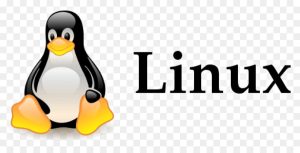What is Open-Source Operating System ?
An open-source operating system is a type of operating system whose source code is made freely available for anyone to use, modify, and distribute. This open approach allows developers worldwide to contribute to the improvement and customization of the operating system, fostering collaboration and innovation.
Some well-known examples of open-source operating systems include:
- Linux distributions like Ubuntu, Fedora, and Debian.
- FreeBSD and OpenBSD, which are Unix-like operating systems.
- Android, which is based on the Linux kernel and primarily used in mobile devices.
- Chromium OS, the open-source version of Google’s Chrome OS used in Chromebooks.
Best Open-Source Operating System
Most of the open-source operating systems are Linux based. Some of the best open-source operating systems are as follows:
1. Linux Kernel:

The core of many open-source operating systems, offering essential functions and hardware interactions. Linux kernel was developed by Linus Torvalds.
2. Linux Lite:

- Linux Lite is another free and open-source operating system that can run on lower-end hardware.
- A lightweight Linux distribution suitable for lower-end hardware, designed for user-friendliness.
- The operating system includes all of the required programs, capabilities, tools, and desktops. It has a minimal interface and is entirely based on the Ubuntu system.
3. Linux Mint:
- Linux Mint is a powerful Linux-based operating system that exudes modernity and power.
- It is simple to use and includes complete multimedia capabilities, making it a user-friendly open-source operating system.
- It is an Ubuntu-based distribution that is popular among both beginners and experts.
- A user-friendly Ubuntu-based distribution with strong multimedia capabilities and visual aesthetics.
4. Fedora:
- Fedora is another popular Linux-based operating system, and it is widely considered the best open-source operating system after Ubuntu.
- It is an RPM-based general-purpose operating system that is supported by Red Hat and built by the Fedora Project community.
- A cutting-edge, general-purpose Linux distribution supported by Red Hat, known for its technological advancements.
5. ReactOS:
- ReactOS is another free and open-source operating system that has nearly 1 million downloads in over 100 countries.
- This community-based OS may run Windows apps, making it an excellent alternative to the Windows operating system.
- Although ReactOS is still growing, users, who love highly customizable operating systems, can select ReactOS.
6. Solus:
- Solus is a free and open-source operating system for your desktop computer. It’s a new operating system from the Linux family, released in 2012.
- More than 6000 registered users are currently using the software. VLC, XChat, Transmission, Thunderbird, OpenShot Video Editor, Firefox, Budgie desktop environment, and LibreOffice Suite are all included with Solus.
- A modern, user-friendly Linux distribution with a focus on desktop computing and a growing user base.
7. Chrome OS:
- Chrome OS is a partly open-source operating system with various attractive features.
- It’s a part of the Chromium and Linux families, with features including better security, compatibility for supported Android and Chrome apps, Aura windows manager, Google cloud print, integrated media player, virtual desktop access, and cloud-based management.
- A partially open-source OS from Google, designed for Chromebooks with cloud-based management and Android app compatibility.
Advantages:
- Reliable and efficient: Due to continuous monitoring and contributions from developers worldwide.
- Cost-efficient: Many open-source systems are free or significantly less expensive than proprietary alternatives.
- Flexibility: Users can customize and modify the software to suit their needs.
Disadvantages:
- Complexity: Requires a certain level of technical understanding compared to user-friendly closed systems.
- Security risks: While vulnerabilities are often quickly addressed, having open source code can potentially expose systems to attacks.
- Limited support: Lack of dedicated customer support, although communities and forums often provide assistance.